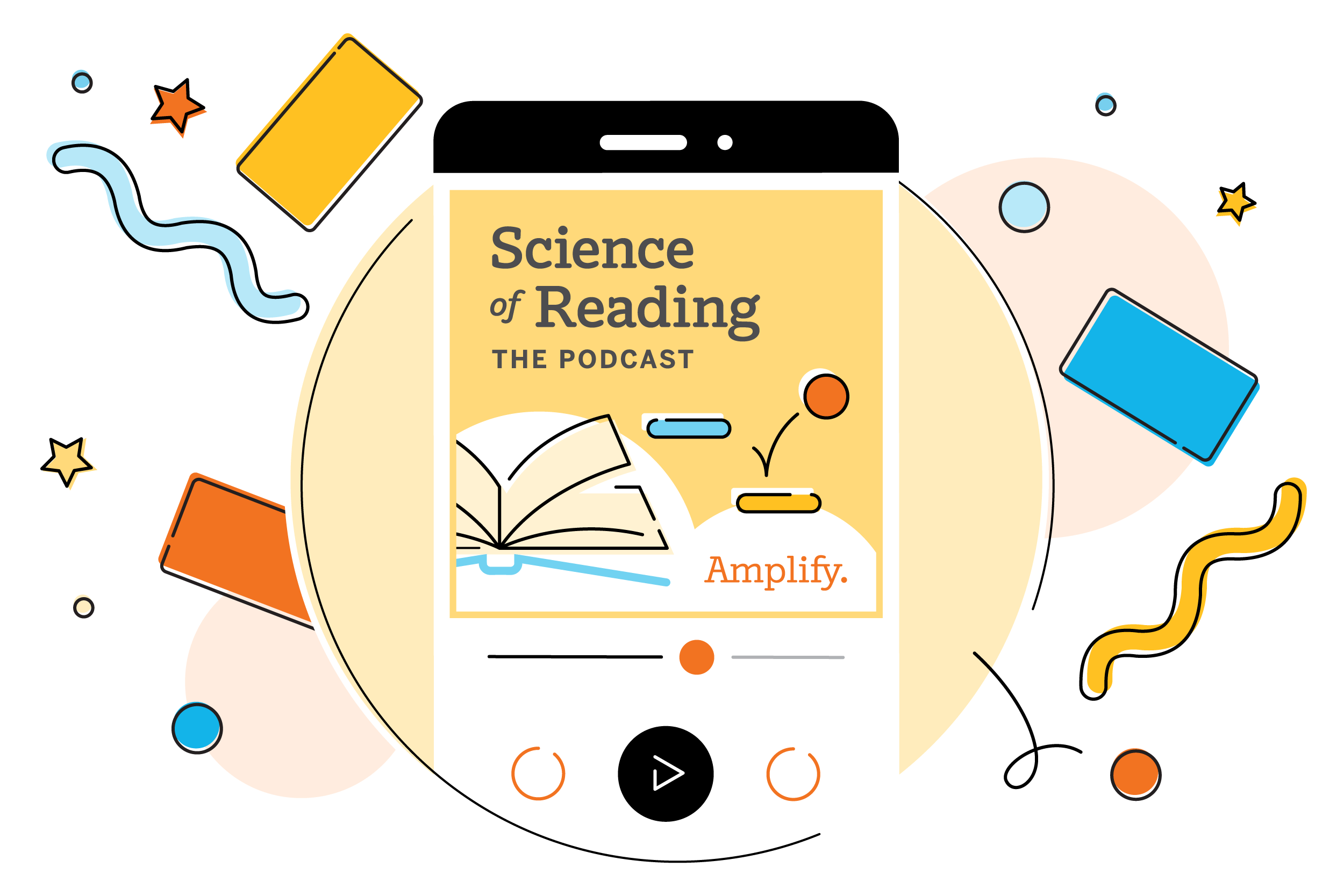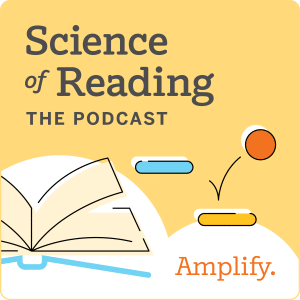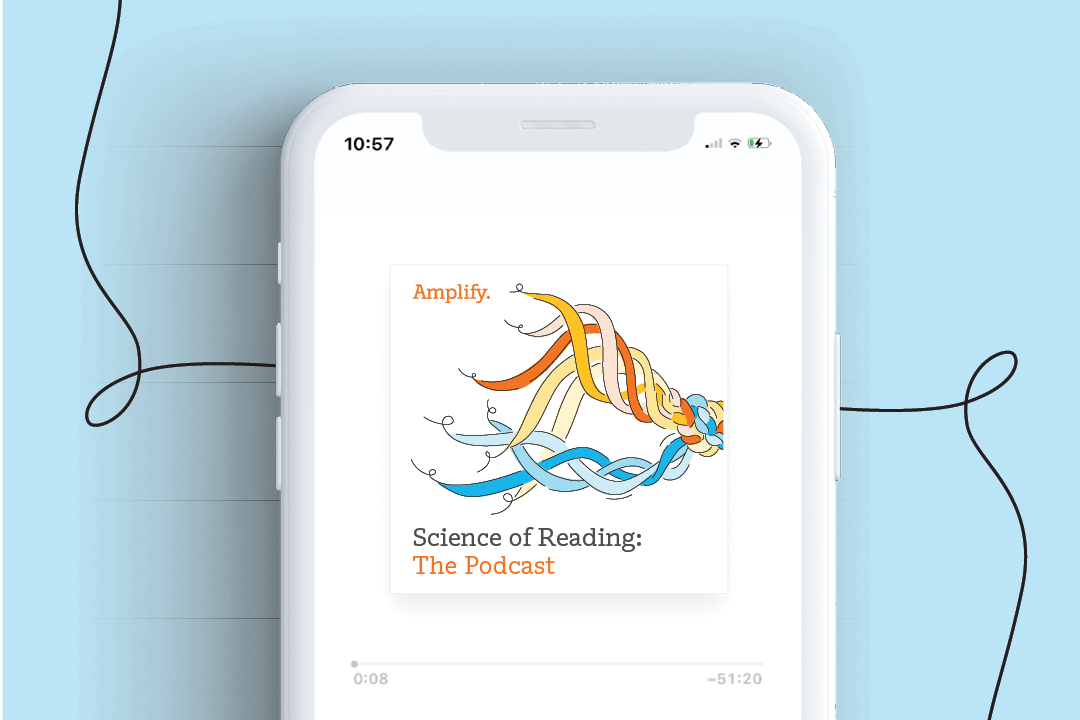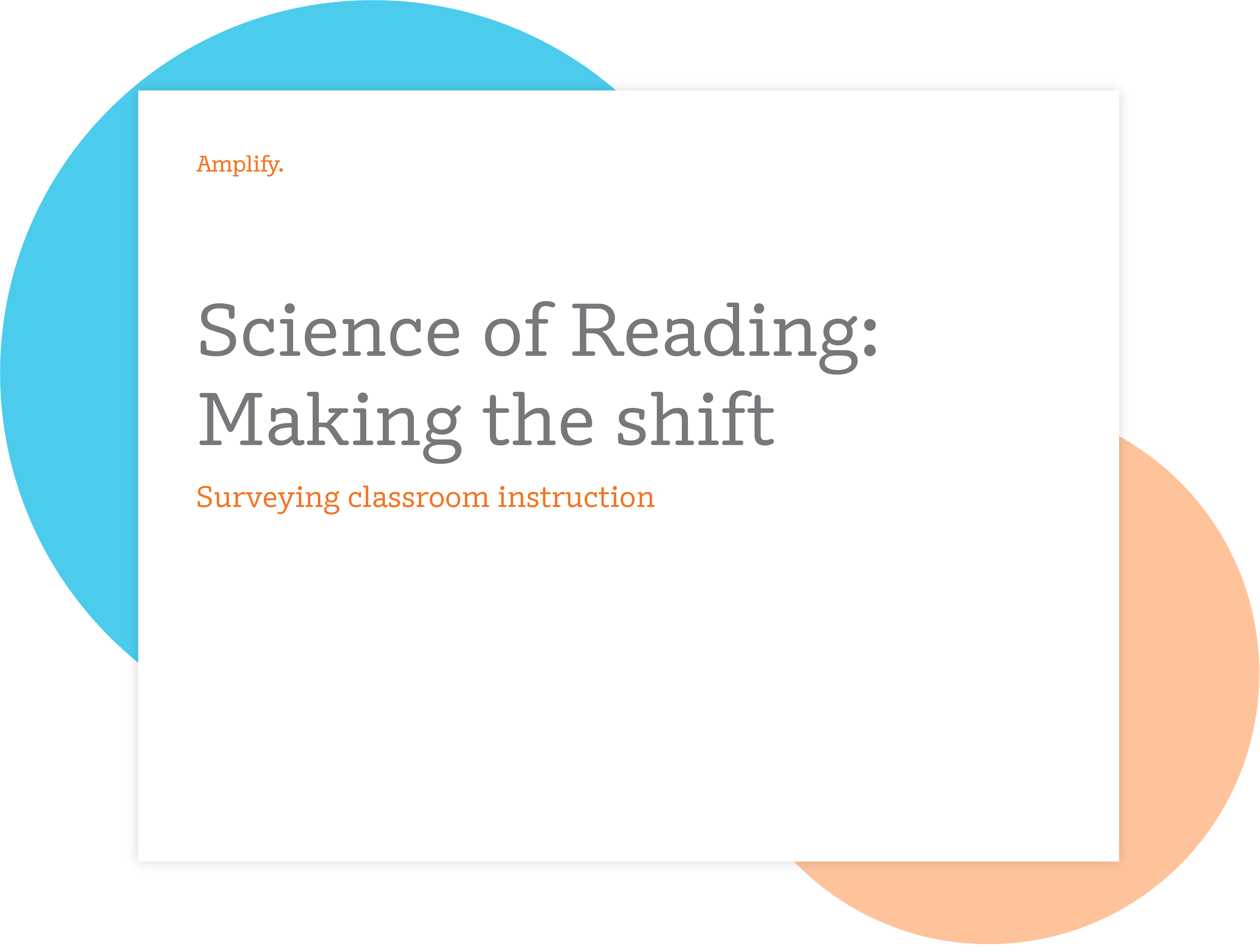
Welcome to Science of Reading: The Podcast…WRAPPED!Ěý
As of the end of 2023, we’ve locked in:Â
- 8 seasons.
- 100+ episodes.
- 100+ guests.
- 150 countries where people listen.Â
- 5.2 MILLION downloads!
What stories do those numbers tell? What stories have our expert guests and hosts told about reading, literacy development, and early literacy skills? And how does it all add up to help educators like you transform your schools or districts with the Science of Reading?Ěý
Let’s take a look!
Science of Reading: The Podcast episode highlightsÂ
Each of our eight seasons explores a different theme through interviews with and insights from leaders in the literacy field.Â
You could honestly just in order, starting with Season 1—we know many of you have! But if you’d like to jump around and sample some highlights, here are several we recommend.Â
- Season 1, Episode 1: The knowledge gap, with Natalie Wexler. The first episode is a good place to start, no matter where you go from here. After all, the Science of Reading shows that early literacy skills are best built on a foundation of knowledge! In this episode, you get the basics from the best. You’ll learn about the importance of knowledge building from Natalie Wexler, who also discusses how a knowledge-based curriculum can bring equity into the classroom. “Kids actually love to learn stuff,” she says. “They love to feel like they’re experts. It does wonders for their self-esteem.”
- Season 2: Episode 1: Confronting the data, with LaTonya Goffney. Superintendent of schools for Texas’s Aldine Independent School District LaTonya Goffney, Ed.D., talks about her district’s successful shift to the Science of Reading in this episode, in which their student data and experiences tells the story. “Reading is the gateway to opportunity,” Goffney says.
- Season 2: Episode 8: Behind the scenes of the National Reading Panel, with Tim Shanahan. This episode features Tim Shanahan, Ph.D., discussing how reading instruction has evolved—and how new research seems to be changing the landscape of the “reading wars” he thought were settled long ago. “We continue to learn,” he says, “And we continue to refine.”Â
- Season 3: Episode 3: Deconstructing the Rope, with Louisa Moats. In this episode, educational consultant Louisa Moats, Ed.D., highlights the significance of decoding in the Science of Reading. “We need to be students of our own language,” she says, “So that when we accept the responsibility of teaching kids how it works, we’re very comfortable.”Â
- Season 4: Episode 7: Linguistic variety and dialects: Difference, not error, with Julie Washington. How can we best support all students as they learn to read—including children who don’t use general American English—in a way that respects students’ community languages? Julie Washington, Ph.D., discusses all that and more in this episode. “Educating yourself as a teacher and recognizing where there is variety and difference and not error is critical for how you’ll respond to it,” she says.
- Season 4: Episode 8: Empowering multilingual learners, with Elsa Cárdenas-Hagan. In this episode, Elsa Cárdenas-Hagan, Ph.D., explains how teachers can connect students’ home languages to English in order to honor their language and use new tools to help them understand English. “The more we’re able to read,” she says, “The more we’re able to learn.”Â
- Season 4: Episode 14: What it takes to be a literacy changemaker, with Kareem Weaver. For those who haven’t made the shift yet—or even those who are just getting started—Kareem Weaver describes why it’s important for educators to be undivided in backing the research. “This is the information age,” he says. “[Students] gotta be able to read and get information or else they’re outside of society from the very beginning.”Â
- Season 5: Episode 1: The right to read, with Lacey Robinson. CEO and President of UnboundEd.org Lacey Robinson defines equity and equitable instruction in this episode, and encourages educators to embrace their students’ local, cultural, linguistic, and historical contexts to enable more rigorous reading opportunities. “Not everybody has to love to read,’ she says, “[But] everybody deserves the right to read.”Â
- Season 5: Episode 2: Biliteracy and assessment, with Lillian Durán. Professor Lillian Durán, Ph.D., describes the advantages of bilingualism and advises instructors to prioritize the development of students’ home languages along with English instruction. “Language is inextricably linked to culture. We want to make sure these families and children feel valued and honored within our schools,” she says.
- Season 6: Episode 2: NAEP: What you’ve always wanted to know, with Chester Finn, Jr. In this episode, Chester Finn, Jr., Ph.D., discusses how the NAEP assessment works and the benefits and opportunities it provides as achievement gaps continue to grow. “The most important thing NAEP cannot do [is that] it cannot…explain why scores are what they are or are rising or falling,” he says.
- Season 7: Episode 3: When not to differentiate, with Jamey Peavler. Learn best practices for small-group instruction and methods for balancing small- and whole-group work with guest Jamey Peavler. “We have this mindset of that small-group differentiated golden standard,” she says, “But there’s a certain amount of instruction [that] all kids need.”
- Season 8: Episode 3: Knowledge and vocabulary: Two sides of the same coin, with Gina Cervetti. Dig deep into the idea of vocabulary words as less a list of words to memorize, and more as the building blocks of knowledge. Ěý“I like to think about vocabulary not as individual words,” she says, “but as a set of labels for ideas that we want kids to be able to read about, and talk about, and write about.”Â
Science of Reading: The Podcast binge-worthy playlistsÂ
Want to dive deep on a certain Science of Reading subject? We’ve got you. Check out some of our curated playlists on the following topics:Â
More to explore
- Join thousands of educators like you and subscribe to the podcast!Ěý
- Science of Reading Star Awards: Meet and celebrate other educators who are leading the way!Ěý


